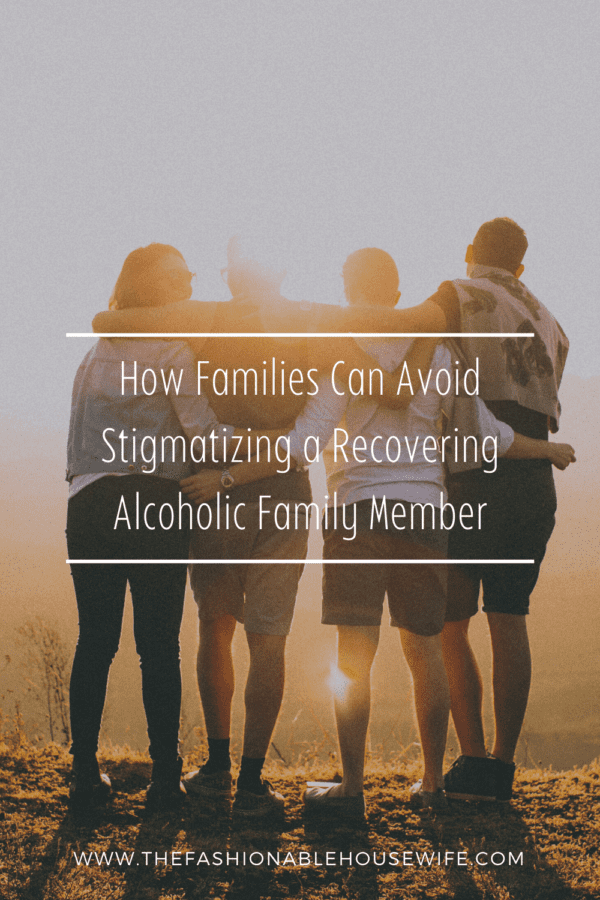
Alcoholism is a chronic disease that can be difficult for a family to deal with. Recovering from alcoholism tends to be even harder, as it’s a painful and stressful process.
If the recovering alcoholic has teenage children, it can be especially hard on them when they realize that their parent has fallen into old habits and is drinking again. It may seem like the recovering alcoholic will never be able to get back on track.
There is help for families who are struggling with this issue, though, including some helpful advice that may make all the difference in how a family feels toward their recovering alcoholic member.
Find support
One of the best ways to avoid stigmatizing a recovering alcoholic family member is to ensure they have support throughout the recovery process.
The recovering alcoholic needs to spend time with people who are supportive of their recovery, who are understanding of the struggles they are facing, and who will be there to help them through it all.
Oftentimes, a recovering alcoholic will need professional support as well. A therapist can often provide a great deal of help to a struggling recovering alcoholic. A therapist will also be able to help the family understand what they are going through and how best to cope with their loved one’s struggles.
Avoid harsh criticism
Another way to ensure that a recovering alcoholic family member doesn’t feel stigmatized is to avoid harshly criticizing or lecturing them about their drinking habits.
Sometimes, people who are trying to recover may relapse and then blame themselves for it. They may not want to go back to a support group because they think it makes them a failure. It’s important for families not to take a recovering alcoholic family member’s behavior personally and to encourage them to seek help again if they relapse. The most important thing is that the recovering alcoholic continues on their path toward sobriety, no matter how many times they may relapse.
Avoid denial
Somewhere along the way, families may find themselves in a state of denial about their loved one’s drinking. They start to believe that their loved one can control it and it doesn’t have a negative impact on anyone.
This, however, is not true, and it can be hard for recovering alcoholics to face the truth if they are surrounded by people who deny it. Encourage open dialogue about the struggles that someone is facing and ask what you can do to help your loved one better.
Take things slowly
It’s important for families to take things very slowly when dealing with a recovering alcoholic family member. Even if their loved one has been sober for several weeks, it’s important to remember they may still be struggling with addiction issues.
It’s also important to note that relapses can happen at any time, so it is best for everyone involved if the recovering alcoholic is always surrounded by people who are supportive of their recovery.
Help them cope
Another thing families can do when it comes to helping a recovering alcoholic with their addiction is to help them cope with their struggles.
Rather than focusing on all the issues caused by alcohol in the past, encourage them to look forward and focus on what they want for their future. Point out how far they’ve come since they started their journey and how much better the future will be if they continue on the path toward sobriety.
Families who are struggling with a loved one’s recovery may sometimes feel guilt or frustration over the situation.
There is always help available, though, even if it seems like things won’t get better. It’s important for everyone involved to find support and to avoid stigmatizing a recovering alcoholic family member as much as possible.



